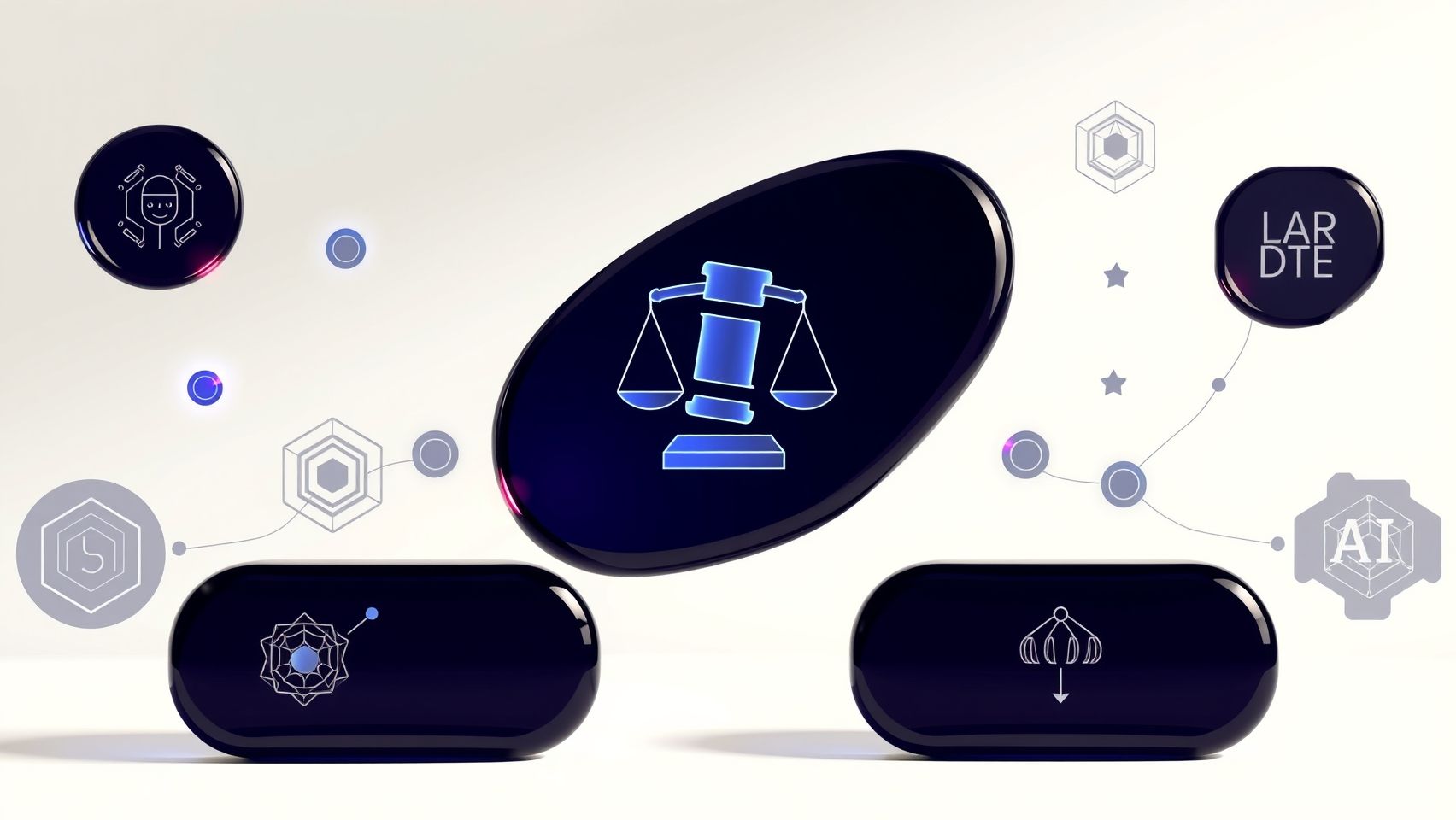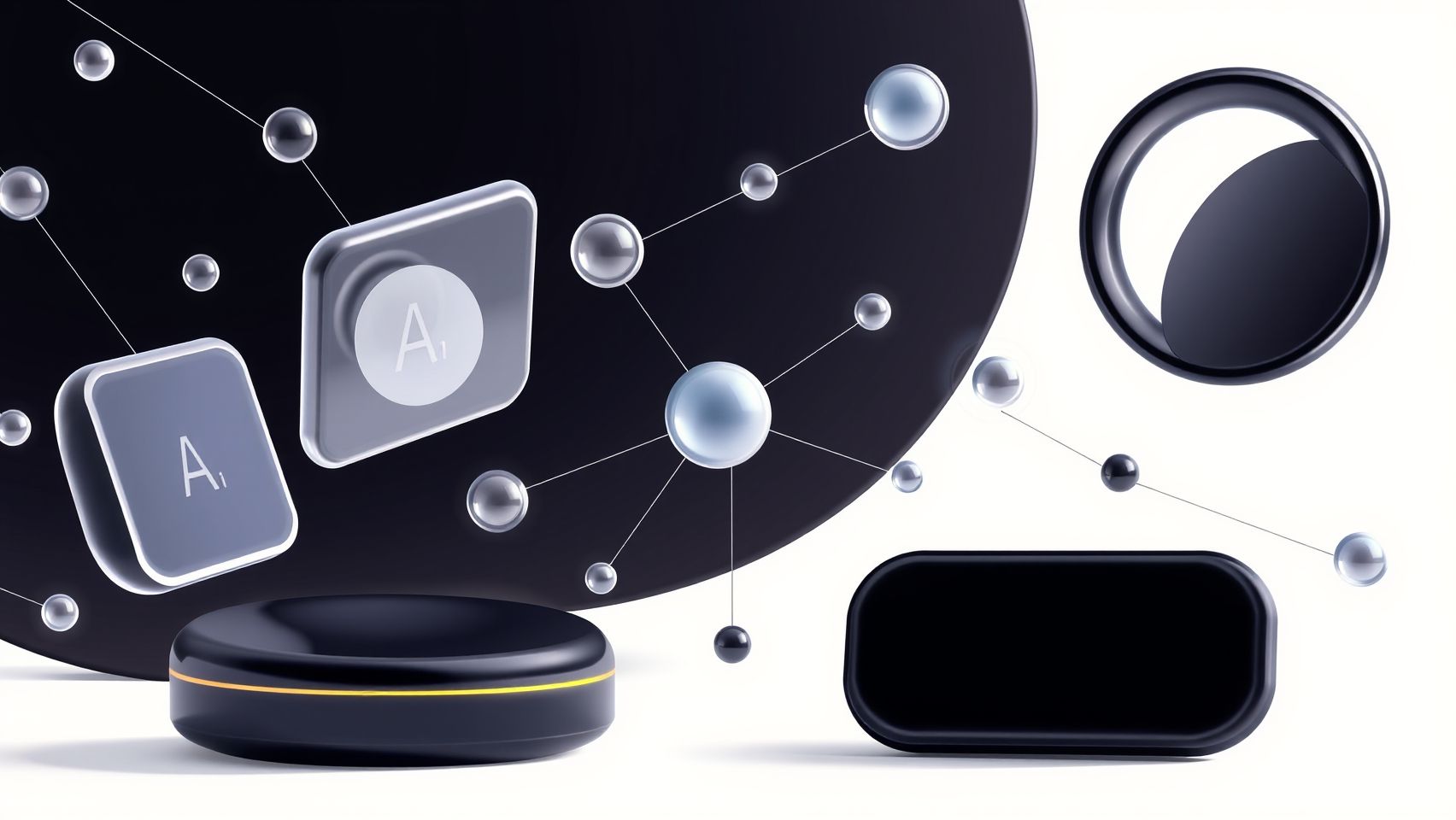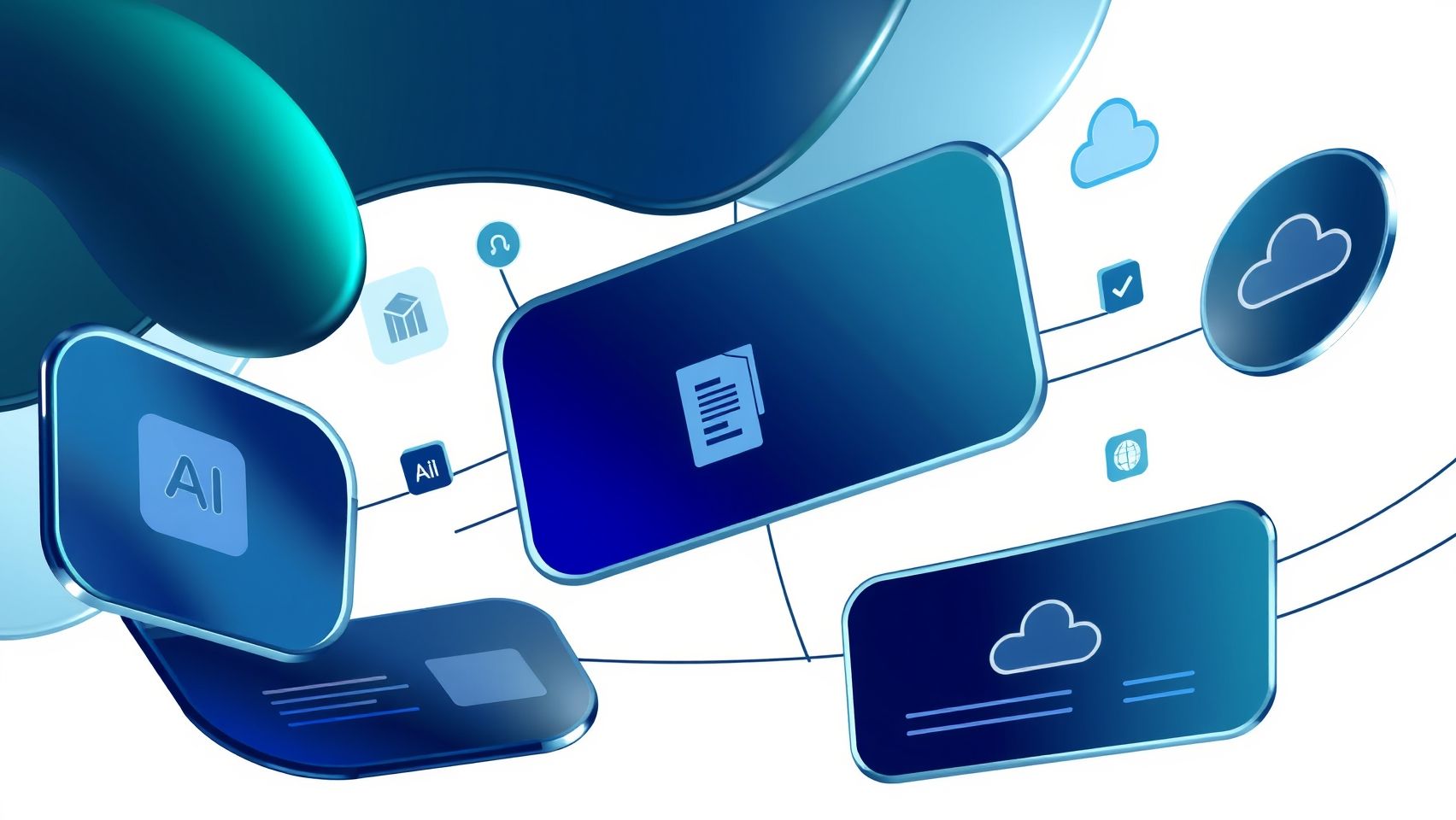How to Use Claude Opus 4 for Legal Writing Compliance and Client Communication
Did you know that over 60% of legal professionals cite maintaining accuracy and compliance as their top challenges when leveraging AI tools? Navigating complex legal standards while ensuring clear communication can feel like walking a tightrope, especially with the increasing demand for efficiency and precision. That’s where powerful AI models like Claude Opus 4 come into play. As the latest evolution from Anthropic, this sophisticated AI is designed to enhance legal writing, reduce errors, and facilitate seamless client interactions. Its advanced reasoning abilities help legal teams safeguard against pitfalls like outdated precedents or ambiguous language, all while boosting productivity. Imagine an AI that can analyze legal documentation, suggest compliant phrasing, and even craft coherent responses for client inquiries—further empowering your firm to deliver top-notch service. Ready to discover how Claude Opus 4 can revolutionize your legal practice? Keep reading to uncover practical steps and expert insights that will help you harness this cutting-edge technology for superior legal writing and communication.
What the Research Reveals About Using AI in Legal Practice

Recent research and benchmark evaluations highlight significant advancements in AI models tailored for complex tasks such as legal writing and reasoning. Claude Opus 4, for instance, achieves up to 72.5% on SWE-bench, surpassing GPT-4 in reasoning and coding performance relevant to legal applications. These improvements are not merely incremental but represent a substantial leap in AI capabilities, making models like Claude Opus 4 highly valuable for legal practitioners seeking accuracy and in-depth analysis.
Claude Opus 4’s performance metrics emphasize the importance of sophisticated prompt engineering, multi-modal inputs, and safety protocols. Its ability to handle long-context reasoning, up to 200,000 tokens, allows for comprehensive analysis of lengthy legal documents, case law, and regulatory materials. This depth enhances the AI’s utility in drafting, reviewing, and analyzing complex legal issues, providing deeper reasoning that can support more nuanced legal decision-making.
Capabilities and Performance Metrics
Models like Claude Opus 4 outperform previous generations on key industry benchmarks, leading to a +10 point improvement in coding accuracy, which is crucial for developing legal tech solutions and automating routine tasks. These models excel in reasoning tasks essential to legal analysis, such as understanding multifaceted case scenarios and generating coherent, logically sound legal arguments.
In addition to performance benchmarks, tools supporting these models—such as SDKs and libraries like Requests and BeautifulSoup—facilitate integration into legal workflows, enabling scalable deployment and automation. AI models are increasingly supporting long prompts, making them adaptable for extensive legal research and complex documentation processes.
Challenges and Practical Considerations
Despite impressive progress, challenges remain, including managing access restrictions, scaling deployments across large legal teams, and implementing error mitigation strategies to ensure reliability. Ensuring compliance with data privacy and safety protocols is vital, especially when handling sensitive legal data.
Further research reveals gaps in detailed implementation examples and real-world case studies, highlighting the need for ongoing practical testing and validation within legal settings. Industry insights suggest that leveraging prompt engineering, multi-modal inputs, and safety mechanisms will be key to maximizing AI utility while minimizing risks.
As these models continue to evolve, legal firms must focus on aligning AI capabilities with regulatory standards and operational workflows—transforming their legal practice with cutting-edge AI-driven insights and automation.
Step-by-Step Guide to Setting Up Claude Opus 4 for Legal Documentation

Integrating Claude Opus 4 into legal writing workflows can significantly enhance compliance, accuracy, and client communication. To achieve this, a structured setup process is essential, ensuring seamless integration, security, and optimal performance. This guide provides detailed steps to help legal firms implement Claude Opus 4 effectively.
1. Obtain API Access and Keys from Anthropic
The first step is to select an appropriate API access plan from Anthropic, based on your firm’s usage needs. Anthropic offers various plans, including options for enterprise-level integration with extended reasoning capabilities. After choosing a plan, register on Anthropic’s platform and generate your API keys. These keys authenticate your applications and enable secure communication with Claude Opus 4.
Recent updates indicate that the latest models, including Claude Opus 4, now support extended thinking modes, which are particularly useful for complex legal documentation and ensuring adherence to compliance standards. Review the official model card to understand safety results and features.
2. Configure SDKs for Smooth Integration
Deploy SDKs such as Python’s requests library to facilitate API calls. Install necessary libraries and set up environment variables to include your API keys securely. A typical Python configuration involves importing requests, setting up headers with your API key, and preparing payloads that define your model parameters. This setup ensures reliable and scalable automation of legal document generation and review tasks.
Using the latest API documentation from Anthropic, you can customize your SDK configuration to optimize response times and handle extended reasoning capabilities effectively. Proper setup reduces latency and improves overall workflow efficiency.
3. Develop Legal-Specific Prompts
Create prompts that emphasize clarity, precision, and compliance with legal standards. For example, prompts should instruct Claude to prioritize accuracy in legal terminology, maintain confidentiality, and verify adherence to relevant laws and regulations. Sample prompts might include instructions like, “Generate a client communication letter that complies with GDPR and clearly explains case progress” or “Summarize contractual clauses ensuring legal accuracy.”
Design prompts to focus on specific legal contexts, and incorporate examples to guide the model’s understanding. Consistent prompt craftsmanship enhances output quality, ensuring it aligns with compliance and client communication standards.
4. Implement Prompt Caching and Optimization
To reduce costs and improve efficiency, implement caching mechanisms for frequently used prompts or responses. Store common legal templates or standard responses locally, and retrieve them when needed instead of re-querying Claude Opus 4. This strategy minimizes API calls, accelerates workflows, and ensures consistency across client communications.
Utilize local storage solutions or in-memory caches within your integration environment, and periodically update cached prompts to reflect legal updates or changes in standards.
5. Set Up Safety Checks and Compliance Filters
Incorporate safety nets within your integration to prevent non-compliant or erroneous outputs. This could involve post-processing filters that review generated text for sensitive information or legal inaccuracies. Implement predefined rules aligned with legal ethics, data privacy laws, and firm policies.
Regularly review flagged outputs, and refine prompts and filters to adapt to evolving legal standards. This proactive approach ensures your legal documentation remains accurate, ethical, and compliant.
6. Testing and Refinement
Conduct comprehensive testing with real legal documents and client communication scenarios. Analyze output quality, compliance adherence, and clarity. Adjust prompts and safety filters based on feedback to optimize results.
Iterate these steps, leveraging recent advancements like Claude Opus 4’s improved reasoning and extended context windows, to refine your setup continuously. Staying updated with official Model documentation and industry best practices ensures your legal workflows benefit from AI integration.
Integrating AI Tools for Client Communication and Practice Areas

Leveraging Claude Opus 4 and similar AI models can significantly enhance legal firms’ workflows by streamlining client communication, generating accurate legal summaries, and crafting practice area-specific content. With the rapid evolution of large language models (LLMs), firms now have tools capable of producing personalized, compliant, and context-aware interactions that improve responsiveness and client satisfaction.
Claude Opus 4, renowned for its ability to handle complex reasoning and long-duration tasks, offers a versatile platform for automating initial client responses, follow-ups, and tailored legal content creation. Its advanced capabilities enable firms to utilize prompt templates customized to various practice areas, ensuring relevance and accuracy in ongoing client communication and legal analysis.
Using Practice-Area-Specific Prompts for Tailored Drafts
Legal professionals can develop specific prompt templates for different practice areas such as family law, corporate law, or criminal defense. For example, a family law template might focus on generating empathetic and clear communication about custody arrangements, while a corporate law prompt could produce drafts for contract summaries or compliance checklists. These templates guide AI to produce relevant content swiftly, reducing manual drafting time and minimizing errors.
Incorporating Multi-Modal Inputs for Richer Context
Claude Opus 4 supports multi-modal inputs, allowing firms to include documents, emails, and legal briefs within prompts for more comprehensive context understanding. For instance, uploading a client’s previous correspondence alongside a legal brief enables the AI to generate more personalized responses and summaries that respect the specific nuances of each case. This capability ensures client interactions are not only prompt but also contextually appropriate and legally sound.
Automating Client Responses and Follow-Ups
Automation of initial responses and follow-up emails is key to improving responsiveness. Using AI, firms can set up workflows that trigger draft responses based on incoming client queries, with the option for legal review before sending. This approach ensures clients receive timely updates and reduces the administrative burden on attorneys. AI-generated follow-ups can be customized based on client preferences and case specifics, maintaining professional tone and legal compliance.
Review Workflows and Client Customization Protocols
Despite high accuracy, all AI-generated content requires review by legal professionals to ensure alignment with current laws and ethical standards. Implementing review workflows allows attorneys to edit drafts efficiently, maintaining control over legal accuracy. Additionally, establishing client-specific protocols—such as personalized communication styles and compliance checks—ensures interactions remain tailored and ethically sound, fostering trust and transparency.
By integrating Claude Opus 4 effectively into their practice, legal firms can enhance efficiency, improve client engagement, and maintain high standards of legal compliance. These advanced AI capabilities enable a proactive approach to practice management, positioning firms to meet modern client expectations with speed and precision.
Tools and Platforms to Enhance AI-Driven Legal Writing

Integrating Claude Opus 4 into legal workflows can significantly boost efficiency and accuracy, but leveraging the right tools and platforms is essential for optimal results. From setup and management to security and long-context reasoning, a practical approach ensures your legal team maximizes AI potential while maintaining compliance.
Official APIs and SDKs for Claude Opus 4
Anthropic offers comprehensive SDKs and API access for Claude Opus 4, designed to simplify deployment and integration within legal systems. These tools support multiple programming languages, including Python, via client libraries that facilitate easy interaction with the API. The API is available on Anthropic’s platform, Amazon Bedrock, and Google Cloud’s Vertex AI, allowing flexibility based on infrastructure preferences.
Pricing for the API starts at $29/month for basic plans, making it accessible for firms of varying sizes. Setup involves creating an account through the Anthropic API Console, generating API keys, and configuring access controls—critical steps to safeguard client data. Regular management includes monitoring usage, optimizing prompt engineering, and ensuring data security through encryption and role-based access controls, all of which are supported by Anthropic’s official documentation.
Python Libraries for Data Scraping and Feeding into AI
Legal professionals often need to analyze large volumes of legal data, including case law, statutes, and internal documents. Python libraries such as Requests and BeautifulSoup are widely used to scrape and parse web-based legal data efficiently. These tools enable the extraction of relevant information, which can then be formatted into prompts or fed directly into Claude Opus 4 for further analysis or summarization.
Combining these libraries with secure data handling practices ensures that sensitive legal content remains protected, especially when automating data ingestion in compliance with privacy standards.
Prompt Engineering and Optimization for Legal Contexts
Effective prompt design is crucial for extracting precise and reliable outputs from Claude Opus 4. Adapting best practices from OpenAI’s prompt engineering techniques, legal professionals should focus on structured instructions, clear formatting, and long-context encoding. Anthropic’s guide on Claude 4 prompt engineering highlights strategies for complex legal reasoning, ensuring the model can handle extended documents up to 200,000 tokens.
Specialized prompt engineering tools and frameworks help craft prompts that facilitate contract analysis, legal research, and document drafting, streamlining workflows while reducing human error.
Security and Long-Context Capabilities
Client data security is paramount in legal AI applications. Access controls, data encryption, and audit logs are essential for protecting sensitive information. Anthropic’s API allows encryption and role-specific access, helping law firms stay compliant with data protection regulations.
Moreover, Claude Opus 4 supports long-context prompts up to 200K tokens, enabling complex legal reasoning across extensive documents—ideal for analyzing lengthy contracts, case files, or legislation within a single query. Utilizing platforms that support such extended contexts enhances the AI’s reasoning capabilities, making it a powerful tool for comprehensive legal analysis.
How to Use Claude Opus 4 for Legal Writing Compliance and Client Communication

Claude Opus 4 is rapidly becoming a preferred AI tool for legal professionals, thanks to its exceptional reasoning capabilities and robust natural language processing. It outperforms many existing models in key reasoning benchmarks, making it an invaluable resource for legal writing, compliance, and effective client communication. Its ability to handle complex legal language and long-context understanding positions it as a game-changer in the legal tech landscape.
Before implementation, understanding the latest trends, costs, and limitations of Claude Opus 4 can guide law firms in making informed decisions. Recent industry reports highlight that AI adoption is soaring across North American law firms, with 79% reporting AI use in 2024—a significant increase from previous years. Market data indicates that Claude Opus 4 offers superior reasoning performance, which is crucial for risk assessment, contract analysis, and regulatory compliance. This performance advantage is further supported by its capability to manage up to 200,000 tokens in a single context, enabling comprehensive legal interpretations and drafting.
Which AI tool offers the best performance for legal writing?
Current research and industry comparisons suggest that Claude Opus 4 leads the pack in reasoning benchmarks among large language models tailored for legal tasks. Its architecture is designed to excel in risk analysis, legal argumentation, and detailed document review, surpassing other models like ChatGPT in these areas. As a result, law firms leveraging Claude Opus 4 can produce more accurate, compliant, and well-reasoned legal documents.
How much does it cost to set up and run?
Setup costs are primarily based on API subscription plans, with basic packages starting at around $29 per month. Larger firms or those with high-volume needs may opt for scaled plans, which depend on usage levels and specific feature requirements. Ongoing expenses are generally tied to API calls and data processing volume, making it essential for firms to evaluate their projected usage to estimate total costs accurately. The market trend indicates that competitive pricing is evolving, with flexibility offered for different practice sizes and needs.
What are common setup issues?
Most early implementation challenges revolve around API access delays, which can be caused by high demand or technical misconfigurations. Prompt design also presents hurdles; legal professionals need to develop precise prompts to elicit useful outputs without misinterpretation. Additionally, data security remains a critical concern, as firms must ensure that sensitive client information is protected during API interactions. Proper integration protocols and security measures are vital to mitigate these issues effectively.
Can I customize prompts for different practice areas?
Yes, Claude Opus 4 supports extensive customization through tailored prompt templates suited to various legal specialties, such as corporate law, family law, or intellectual property. Custom prompts enable more relevant and insightful responses by guiding the AI towards specific legal contexts, terminology, and compliance standards. This flexibility ensures that law firms can optimize AI outputs for their unique practice needs, improving overall efficiency and accuracy.
How do I ensure compliance and avoid errors?
Legal compliance with AI-generated content can be achieved by implementing layered safety filters, regular review procedures, and prompt constraints. Establishing review protocols where senior attorneys verify AI outputs before client submission reduces risk of errors. Furthermore, employing prompt engineering techniques to specify clear instructions helps steer outputs toward accurate and compliant results. Combining human oversight with AI capabilities creates a robust framework for legal writing.
What are the limitations of Claude Opus 4?
Despite its strengths, Claude Opus 4 still faces limitations, notably the scarcity of real-world deployment case studies tailored specifically for legal settings. Detailed guidance on error mitigation and handling ambiguous prompts remains limited, which may challenge initial implementation. As the model continues to mature, ongoing research and real-world testing will be necessary to fully understand its boundaries and best practices in legal contexts.
Conclusion

Implementing Claude Opus 4 effectively is essential for enhancing legal compliance, improving client communication, and boosting overall practice efficiency. As recent trends demonstrate, AI adoption in the legal sector is rapidly accelerating, with a growing number of firms recognizing its transformative potential to automate routine tasks, reduce errors, and deliver superior service.
Key steps to harness these benefits include obtaining API access, developing tailored prompts that align with your firm’s unique workflows, and piloting AI integration gradually within your practice. Consistent review and adaptation will ensure your AI tools continue to meet evolving legal standards and client expectations.
Now is the time to act—embrace AI to unlock tangible improvements in your legal operations today. Start by taking these practical steps, and position your firm at the forefront of legal innovation. The future belongs to those who leverage advanced tools like Claude Opus 4 to secure a competitive edge and deliver exceptional client outcomes.
Your journey toward smarter, more compliant legal practice begins now—don’t wait to lead the change.






